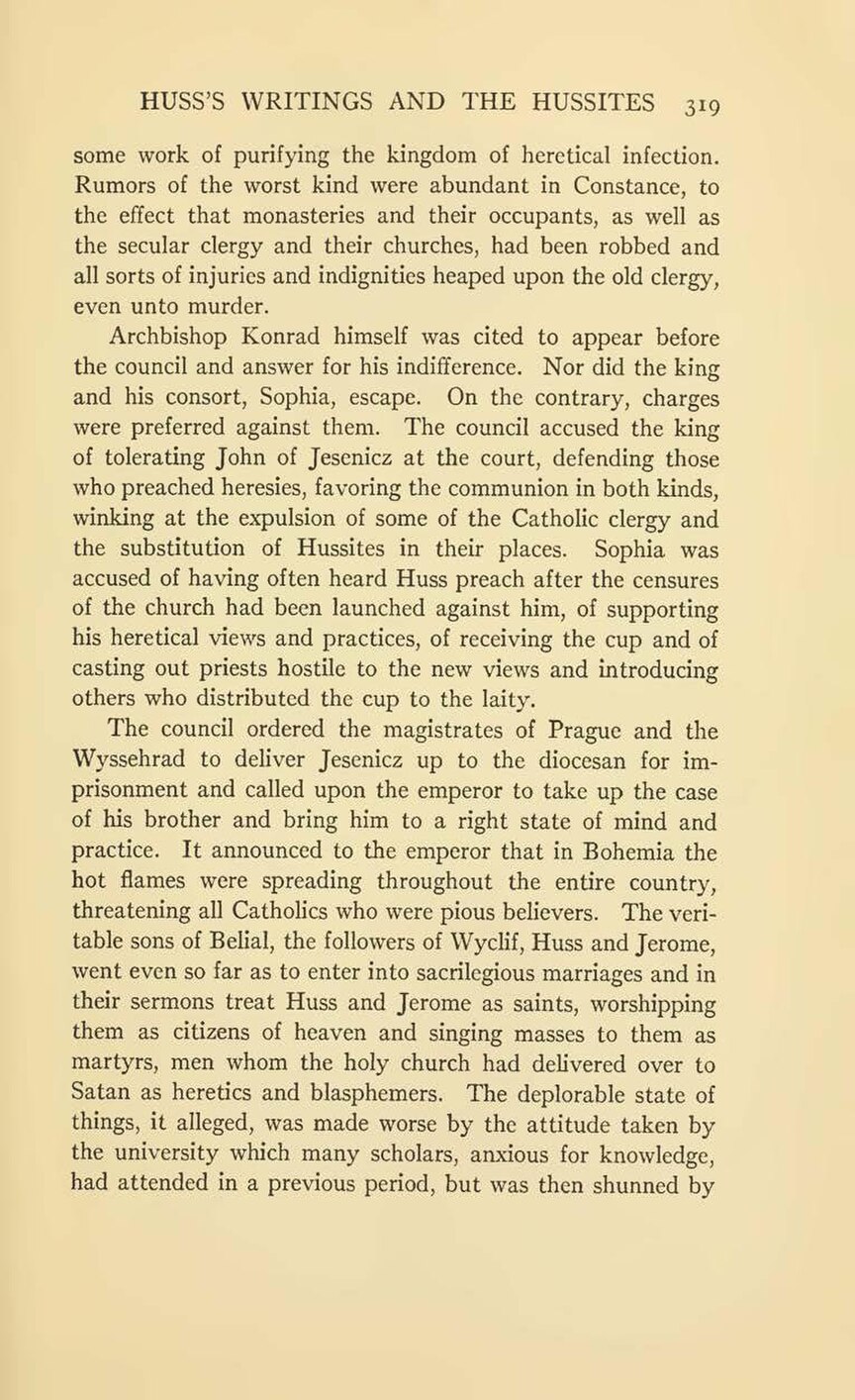some work of purifying the kingdom of heretical infection. Rumors of the worst kind were abundant in Constance, to the effect that monasteries and their occupants, as well as the secular clergy and their churches, had been robbed and all sorts of injuries and indignities heaped upon the old clergy, even unto murder.
Archbishop Konrad himself was cited to appear before the council and answer for his indifference. Nor did the king and his consort, Sophia, escape. On the contrary, charges were preferred against them. The council accused the king of tolerating John of Jesenicz at the court, defending those who preached heresies, favoring the communion in both kinds, winking at the expulsion of some of the Catholic clergy and the substitution of Hussites in their places. Sophia was accused of having often heard Huss preach after the censures of the church had been launched against him, of supporting his heretical views and practices, of receiving the cup and of casting out priests hostile to the new views and introducing others who distributed the cup to the laity.
The council ordered the magistrates of Prague and the Wyssehrad to deliver Jesenicz up to the diocesan for imprisonment and called upon the emperor to take up the case of his brother and bring him to a right state of mind and practice. It announced to the emperor that in Bohemia the hot flames were spreading throughout the entire country, threatening all Catholics who were pious believers. The veritable sons of Belial, the followers of Wyclif, Huss and Jerome, went even so far as to enter into sacrilegious marriages and in their sermons treat Huss and Jerome as saints, worshipping them as citizens of heaven and singing masses to them as martyrs, men whom the holy church had delivered over to Satan as heretics and blasphemers. The deplorable state of things, it alleged, was made worse by the attitude taken by the university which many scholars, anxious for knowledge, had attended in a previous period, but was then shunned by
